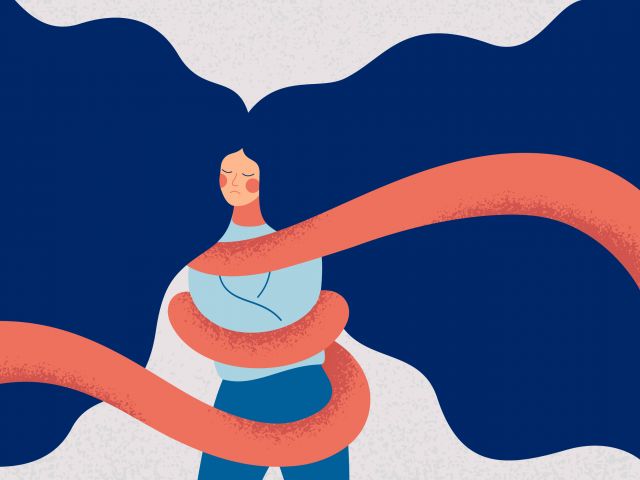Bodies belong at CBS

(Photo by Anna Holte)
Disturbing news!
70% of all bachelor students and 50% of the second-year master’s students rated the quality of CBS online teaching lower or much lower than ordinary teaching.
This underlines many points, but one in particular: Technology is not innocent. Along with the invention of the airplane came the less appealing possibility of airplane crashes.
Therefore, it is important, whenever we introduce more technology, that we remember to ask: What consequences will it have for humans? Is obligatory CBS digitalization any more innocent than Covid-19?
Bodies in conflict
A few digital-learning consequences quickly spring to mind. Digital reading pace and understanding is lower, communication is worse, sociality, unity and networking have to be redefined. But since we are talking specifically about online teaching, let me present you with the biggest conflict. Our bodies.
The possibility of high-quality online teaching subscribes to the notion that we learn, think and are present in our minds, whereas our bodies are reserved for kicking footballs about rather than ideas. If this is true, replacing the body’s presence with microelectronic waves is not a problem from a teaching perspective. Thoughts and ideas can thrive in the ether.
But can you physically kick a football in cyberspace? Of course not. And here the problem arises: Humans learn through senses and experiences and therefore also with the same body that we use to kick a football. Would your learning experience with your favorite teacher/professor be the same if you couldn’t feel his or her physical presence? The answer is no.
With this in mind, online teaching cannot be seen as a one-to-one substitute for normal high-level teaching. And unfortunately, because of the pandemic’s urgent need for rapid solutions, so far, the role of the body has been significantly downgraded in CBS’ digitalization onslaught. Therefore, the dissatisfaction of CBS students should not be taken lightly.
An alarming attack on society?
Looking ahead, CBS management must listen, as students are calling (unfortunately only silently through internal surveys) for digital learning to be understood neither as a one-to-one substitute for, nor a supplement to, physical learning, but as a third option, where premises of learning do not align with expected outcomes.
Also, I see almost no loud criticism being voiced by other CBS students. This scares me even more
From a student’s point of view, CBS’ management are not redefining learning objectives, and only little consideration seems be directed on how the students’ physically presence may be important. This scares me. Also, I see almost no loud criticism being voiced by other CBS students. This scares me even more.
I’m not saying we should be afraid of technology and its many possibilities at CBS. I’m saying that because technology is never innocent, we must question its impact on life at CBS.
We must remember that digitalization is a choice, not a necessity, even during a pandemic. And as universities provide core experience for many new graduates joining the labor market, CBS has a responsibility. A responsibility to deliver the right kind of experience. The right kind of choices.
If digitalization is a choice – with no questions asked – the same attitude will come to dominate in the corporate world. If we forget this and if we forget our bodies, professors and leaders at CBS risk actions that can be interpreted as a direct attack on society. An attack that might bring more widespread long-term consequences than Covid-19 ever could.


































































































































I agree